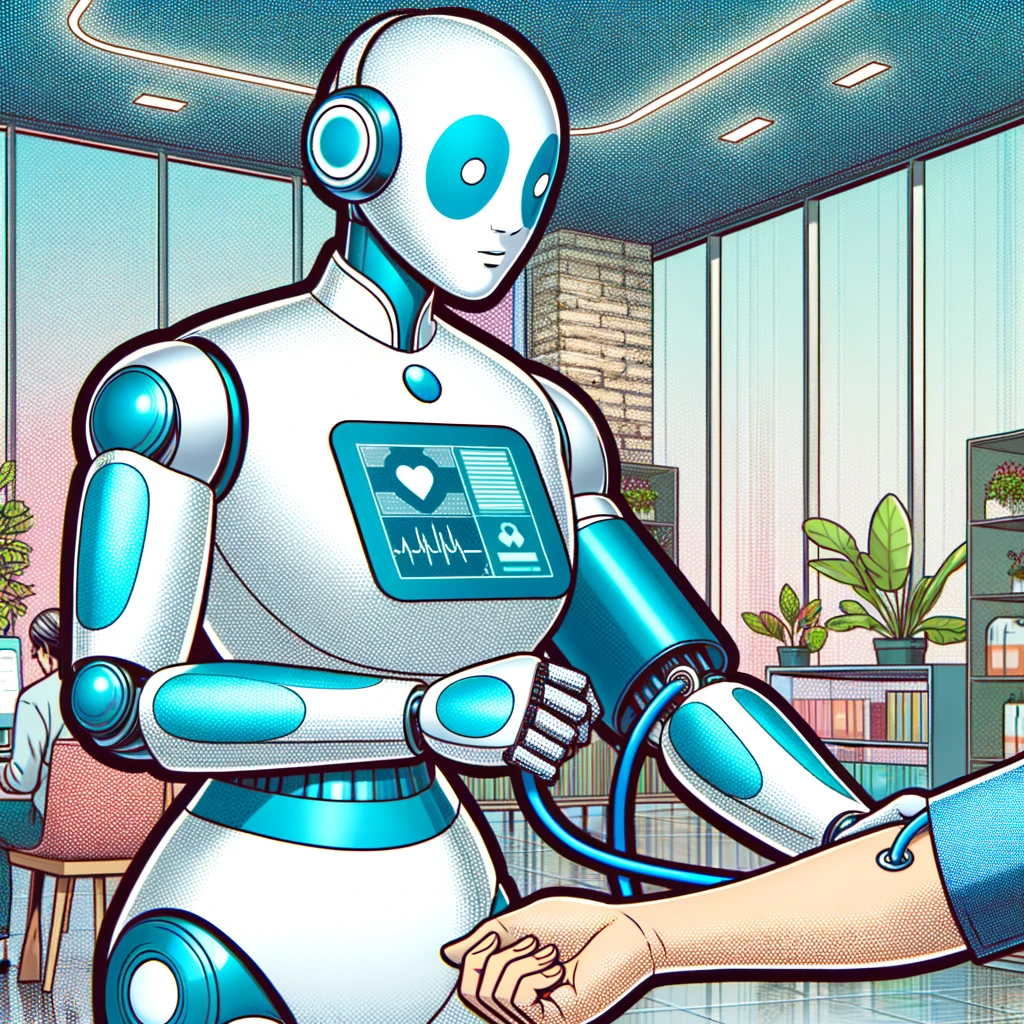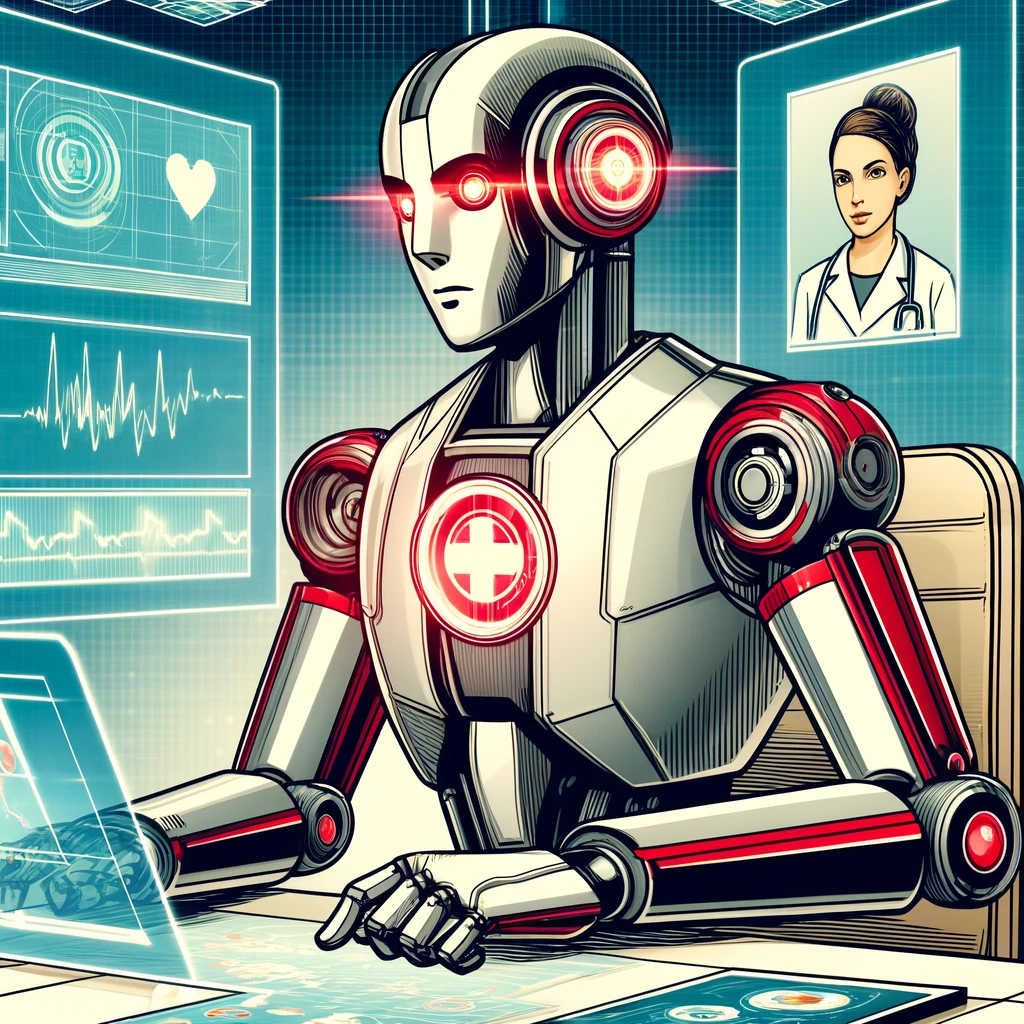The healthcare industry has recently significantly transformed and is mainly driven by technological advancements. Among the most groundbreaking developments is the emergence of Virtual Medical Assistants (VMeDx) – a digital innovation created to simplify the provision of medical services and enhance patient care. This blog article examines how the environment is evolving in virtual medical assistants, evaluates their impact on the healthcare sector, and predicts future trends.

The Rise of Virtual Medical Assistants
Virtual medical assistants are a product of the digital revolution that has taken the world by storm. Their ability to understand and respond to human speech has enabled them.
A Leap into the Future: The Rise of VMeDx
Unlike any other technology, virtual medical assistants have transformed patient engagement and increased accessibility and personalization of healthcare.
VMeDx is at the forefront of improving patient engagement and happiness, from organizing appointments and reminding patients about medication and follow-ups to addressing questions from patients around-the-clock.
Furthermore, by using real-time patient data analysis, these aides help doctors diagnose conditions and prescribe courses of therapy. Delivering healthcare has become much more accurate and efficient thanks to this special capacity.
The Impact of VMeDx on Healthcare
The benefits of virtual medical assistants are manifold.They have made a significant impact on decreasing errors, optimizing patient outcomes, and expediting healthcare procedures.
With VMeDx handling administrative tasks, physicians can focus more on delivering quality patient care, empowering them to make a significant impact in their field. This also helps reduce physician burnout and increase job satisfaction.Additionally, virtual medical assistants have reduced the cost and increased accessibility of healthcare, particularly for underserved and remote places. There is no longer a requirement for patients to physically visit clinics or hospitals because they may communicate with their doctors from the convenience of their homes.
Addressing Challenges in Healthcare Delivery
Adopting virtual medical assistants has addressed several challenges that have plagued the healthcare industry. The shortage of healthcare personnel is one of the main issues that VMeDx has tackled.
Because virtual medical assistants help with clinical decision-making and enable medical professionals to do more with less, they have filled the void left by the global shortage of doctors and nurses.
To free up healthcare personnel to focus on challenging problems, they can help with triaging patients, prioritizing those who need immediate attention, and managing routine cases.
The Future of Virtual Medical Assistants
Virtual medical assistants have a bright future ahead of them. It is anticipated that when technology develops further, VMeDx will become more sophisticated and capable of ever-difficulter tasks.
They will also be crucial in population health management, disease prevention, and chronic disease management. Virtual medical assistants will also be essential in providing customized treatment plans based on patient data analysis as people want individualized care.
The Future of Healthcare: Predictions and Possibilities
As technology advances, we can expect virtual medical assistants to evolve. Here are some predictions on how VMeDx will shape the future of healthcare:
Service expansion: The main activities that virtual medical assistants help with are administrative work and basic healthcare information.
They are anticipated to grow in scope and be able to manage increasingly difficult jobs in the future, like telemedicine-assisted surgery and remote patient vital monitoring.
Improved patient outcomes: This can help detect health issues early on, improving treatment outcomes and overall patient health.
Personalized healthcare: Virtual medical assistants can collect and evaluate patient information to develop personalized therapy regimens and recommendations. This will raise patient contentment and lower the risk of misdiagnosis and unnecessary treatments.
Alleviating the Administrative Overload
One of the primary benefits of Virtual Medical Assistants is their ability to alleviate administrative tasks that traditionally consume a large portion of healthcare providers’ time. By automating these tasks, VMeDx allows medical professionalsshould prioritize patient care over paperwork. This enhances the effectiveness of healthcare delivery in addition to reduces the risk of burnout among healthcare workers.
Improving Access and Personalization
Virtual Medical Assistants make healthcare more accessible by providing patients with information and support at their fingertips. Whether through a smartphone app or a web-based portal, VMeDx empowers patients individuals take charge of their health by making readily available medical records, lab results, and educational materials. This level of personalization and convenience improves patient compliance and encourages proactive health management.
Navigating Challenges and Looking Ahead
Despite the immense potential of Virtual Medical Assistants, their adoption in healthcare faces several challenges. Notable obstacles include worries about data security and privacy, the necessity of strong legislative frameworks, and the need for large investments in technical infrastructure.

The Use of Virtual Medical Assistants in Healthcare in the Future
Looking ahead, the role of Virtual Medical Assistants in healthcare is set to expand. Integration with wearable technology and IoT devices will enable continuous monitoring of patients’ health, potentially transforming disease prevention and management. This reassures the audience about the promising future of healthcare with VMeDx, instilling a sense of confidence and trust in the technology.
In conclusion, the changing landscape of Virtual Medical Assistants represents a promising shift toward more efficient, accessible, and personalized healthcare. Despite the challenges that remain, it is clear that VMeDx has the ability to improve patient outcomes and speed up the delivery of healthcare. We must keep innovating and use these technologies carefully if we are to fully achieve their promise to impact healthcare in the future.
By utilizing the potential of Virtual Medical Assistants, we are not only observing the progress of healthcare but also actively taking part in a revolution that centers care on patients and providers, utilizing the most advanced technological advancements available. So let’s welcome this new chapter in healthcare history and see where it leads!

